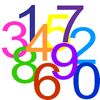Skip over navigation

Fruity Totals
Peaches Today, Peaches Tomorrow...
What's it Worth?
Diamond Collector
Cuboid Challenge
Tree Tops
Sorted
Vector Gem Collector
The Knapsack Problem

Or search by topic
Number and algebra
Geometry and measure
Probability and statistics
Working mathematically
Advanced mathematics
For younger learners
Is There a Better Way?

Is there a better way?
When you finish solving a problem, do you stop to think about your solution before moving on to something else? Do you talk to someone else to see if they solved it the same way? These are good habits to help you become a more resilient problem solver, and we hope the problems in this feature will give you lots of opportunities to explore your own and other people's solutions!
Fruity Totals Age 7 to 16Challenge Level 


Age 7 to 16
Challenge Level 





In this interactivity each fruit has a hidden value. Can you deduce what each one is worth?
Peaches Today, Peaches Tomorrow... Age 11 to 14Challenge Level 


Age 11 to 14
Challenge Level 





A monkey with peaches, keeps a fraction of them each day, gives the rest away, and then eats one. How long can his peaches last?
What's it Worth? Age 11 to 16Challenge Level 


Age 11 to 16
Challenge Level 





There are lots of different methods to find out what the shapes are worth - how many can you find?
Diamond Collector Age 11 to 16Challenge Level 


Age 11 to 16
Challenge Level 





Collect as many diamonds as you can by drawing three straight lines.
Cuboid Challenge Age 11 to 16Challenge Level 


Age 11 to 16
Challenge Level 





What's the largest volume of box you can make from a square of paper?
Tree Tops Age 14 to 16Challenge Level 


Age 14 to 16
Challenge Level 





Can you make sense of information about trees in order to maximise the profits of a forestry company?
Sorted Age 14 to 18Challenge Level 


Age 14 to 18
Challenge Level 





How can you quickly sort a suit of cards in order from Ace to King?
Vector Gem Collector Age 14 to 18Challenge Level 


Age 14 to 18
Challenge Level 





Use vectors to collect as many gems as you can and bring them safely home!
The Knapsack Problem Age 14 to 18Challenge Level 


Age 14 to 18
Challenge Level 





You may also like
Patterns in Number Sequences
These resources are designed to get you thinking about number sequences and patterns.

